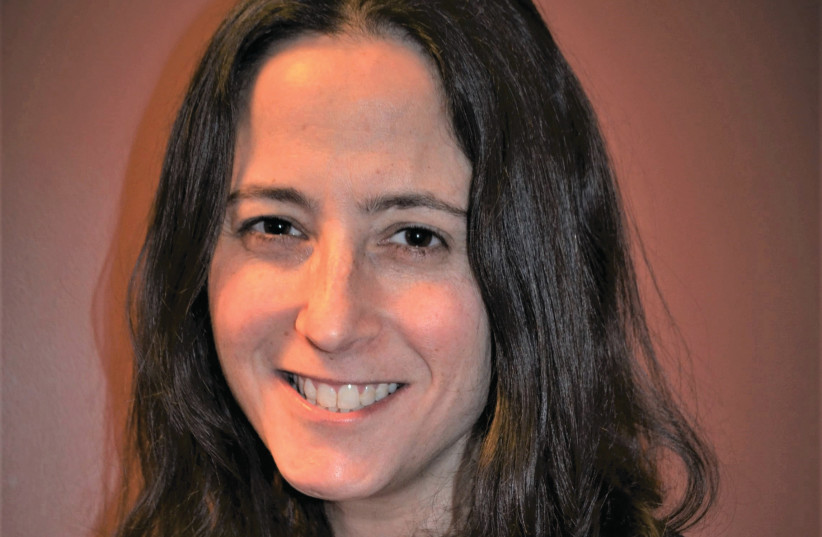About 10 years before Dena Croog Cohen was diagnosed with bipolar disorder, one of her friends committed suicide. That shocking event and her own bouts of depression gave her the idea of starting an organization to educate the American Jewish community about mood disorders.
But it wasn’t until her diagnosis that she experienced a peer-led support group for people with mood disorders in New York. She understood that “getting into a room with people who understand what you are going through” was the direction she wanted her initiative to take.
She received training to facilitate such groups and investigated whether anything like this was available in the Jewish community. Not seeing anything relevant, she penned an op-ed titled “I have bipolar disorder” for a local New Jersey Jewish newspaper in early 2014, eventually winning a journalistic award for her piece.
“It was not about just me,” she explains. “It was a call to the Jewish community to pull this out from under the rug and talk about it because there is still a stigma and misinformation about mood disorders.”
“It was a call to the Jewish community to pull this out from under the rug and talk about it because there is still a stigma and misinformation about mood disorders.”
Dena Croog Cohen

Croog, a writer and editor in the field of mental health and an advisory board member of Elijah’s Journey, an organization dedicated to increasing suicide awareness and prevention in the Jewish community, founded Refa’enu (Heal Us), a registered nonprofit that provides Jewish-oriented support groups and education about behavioral health issues.
The support groups are limited to 10 or 12 vetted individuals. There’s one group for people who have mood disorders and another for their loved ones – family and close friends. The groups are open to Jews of any (or no) affiliation.
“The groups are meant to be in addition to therapy, medication and self-care – not a replacement,” Croog emphasizes.
“The goal is to assist these individuals on an ongoing basis toward better mental health management, to promote a sense of belonging, self-acceptance, the motivation to take responsibility for the illness and the belief that recovery is possible.”
“The goal is to assist these individuals on an ongoing basis toward better mental health management, to promote a sense of belonging, self-acceptance, the motivation to take responsibility for the illness and the belief that recovery is possible.”
Deena Croog Cohen
The peer-led groups began in November 2014, meeting in person every other week until the pandemic.
“Then we went to Zoom, and we realized we could do it every week,” says Croog.
THE ZOOM format led to wider geographic participation, and it became clear to Croog that Refa’enu could expand beyond the United States.
Bringing the mental health format to Israel
“One of our former participants and co-facilitators, Miriam Greenberg, was planning to make aliyah and really wanted to bring this to Israel. I was thinking the same thing,” says Croog.
“We’ve serviced people throughout the US, but every now and then a few people would call from Israel or the UK. It’s hard with the time difference, so we decided it would be great to bring it to English speakers in Israel because that is the demographic we thought we could be most helpful in.”
With the approval of the organization’s board of trustees, Greenberg – who moved from Teaneck, New Jersey, to Efrat last May – began organizing Refa’enu in Israel.
Reading social media posts from English-speaking Israelis with mood disorders convinced Greenberg that there was a niche to be filled.
And she has filled it with a Refa’enu support group for Anglos that meets Wednesdays on Zoom from 7:30 to 8:30 p.m. Israel time.
“I had the need to be part of it. I also felt by helping others, it makes me feel good and helps me as well,” Greenberg says.
As opposed to group therapy sessions led by mental-health professionals, she explains, in a peer-led support group there is no hierarchy. “Everyone on the Zoom call pretty much gets it. There are various phases people are in, and some need to speak more than others, but they don’t necessarily have to explain themselves because everyone understands.”
The peer discussion leads to practical suggestions and insights. “We don’t ever tell people what to do,” says Greenberg. “I like to phrase it as ‘When I felt this or that, I coped by doing this or that, and it might be something you want to try.’”
The first two sessions drew a handful of participants from all over Israel, with various levels of religiosity. In the future, a parallel support group for loved ones could be offered as well.
For now, Greenberg is working to publicize Refa’enu more widely among English speakers with mood disorders.
“I’m committed to getting this out to as many people as I can. I want people to know that they are not alone,” she says. ■
For information, write to refaenuisrael@gmail.com.
